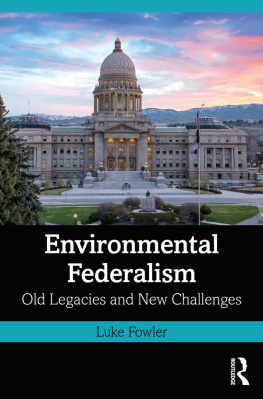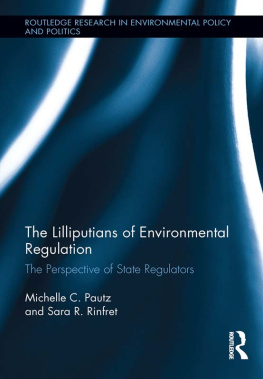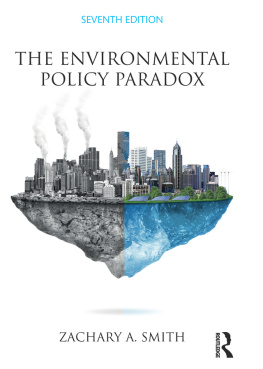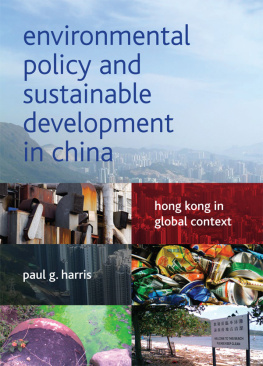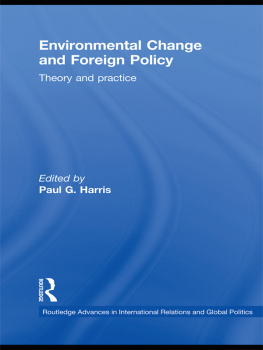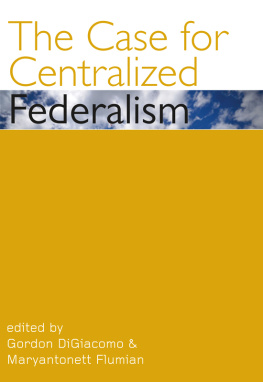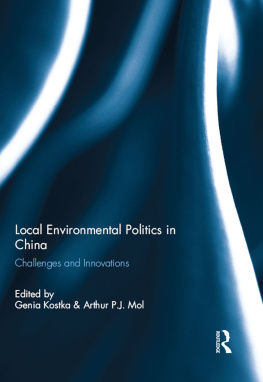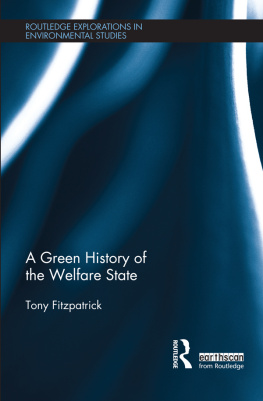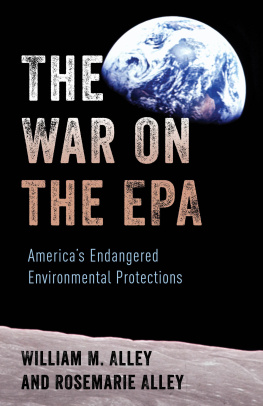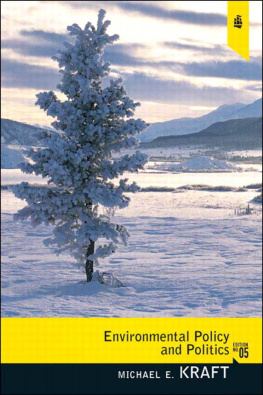ENVIRONMENTAL FEDERALISM
In Environmental Federalism, Luke Fowler helps to refocus much-needed attention on the role of state governments in environmental policy creation and implementation in the United States. While the national government receives most of the attention when it comes to environmental policy, state governments play a vital role in protecting our natural resources. Legacy problems, like air, water, and land pollution, present one set of challenges for environmental federalism, but new problems emerging as a result of climate change further test the bounds of federal institutions.
Examining patterns of pollution and case studies from the Clean Air Act and the Clean Water Act, Fowler explores two questions: has environmental federalism worked in managing legacy environmental problems, and can it work to manage climate change? In order to answer these questions, Fowler extends James Lesters typology using political incentives and administrative capacities to identify four types of states (progressive, delayers, strugglers, and regressives) and assesses how they are linked to the success of federal environmental programs and conflicts in intergovernmental relations. He then considers what lessons we can learn from these programs and whether those lessons can help us better understand climate policy and multi-level institutions for environmental governance.
This timely read will be a valuable contribution to students, researchers, and scholars of political science, public policy, public administration, and environmental studies.
Luke Fowler is Associate Professor in Public Policy and Administration and Director of the MPA program at Boise State University, USA. His research interests include policy implementation, collaboration and collective action, and state and local government, and he has written extensively on subnational environmental policies. His related work has appeared in the American Review of Public Administration, Environmental Politics, Governance, Journal of Environmental Planning & Management, State & Local Government Review, Policy Studies Journal, Public Administration, Publius, Public Works Management & Policy, Public Performance & Management Review, and Review of Policy Research.
Fowler offers a fresh take on environmental federalism by exploring how political and administrative contexts shape state environmental policies, outcomes, and intergovernmental relationships. A one-of-a kind, comprehensive analytical inquiry invaluable for students of political science, public administration and environmental policy, it is the best book written on this topic.
Richard Feiock, Florida State University
The greatest challenge in environmental protection and climate change is that they require tremendous amounts of cooperation across governments. Fowlers text provides a new frame for federalism scholarship a synergy because of environmentalism and multi-layered governance. This book is worth a read for students, scholars and anyone interested in getting a handle on this important topic.
Jessica Terman, George Mason Schar School of Policy and Government
An impressive examination of the crucial though often unappreciated role that federalism plays in US environmental policy. Drawing on an extensive array of original data, Fowler documents significant variation in the ways that states have fulfilled their environmental protection responsibilities. His findings raise profound questions about the capability of the American system to respond to new, complex environmental challenges such as climate change.
Neal D. Woods, University of South Carolina
Environmental Federalism: Old Legacies and New Challenges will likely become the next standard text for understanding the complex interworking of environmental policymaking in our federal system. It offers a cogent exploration of an ever changing and complex policy arena environmental federalism. The field is in need of a contemporary update of environmental federalism and Fowler has delivered!
Hunter Bacot, UNC Greensboro

